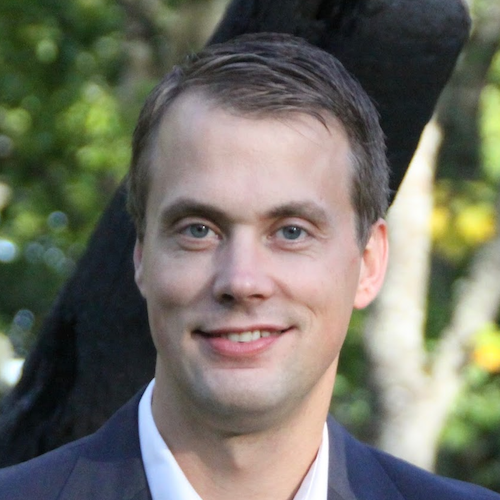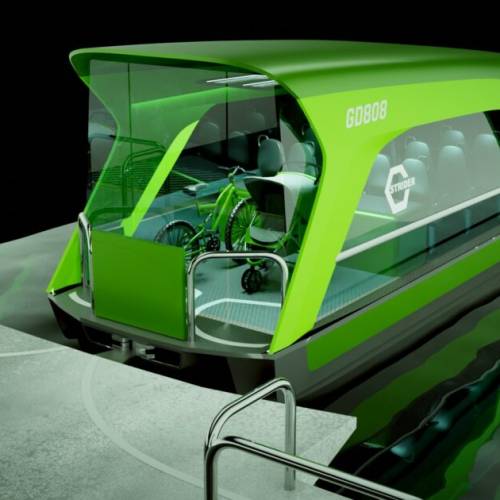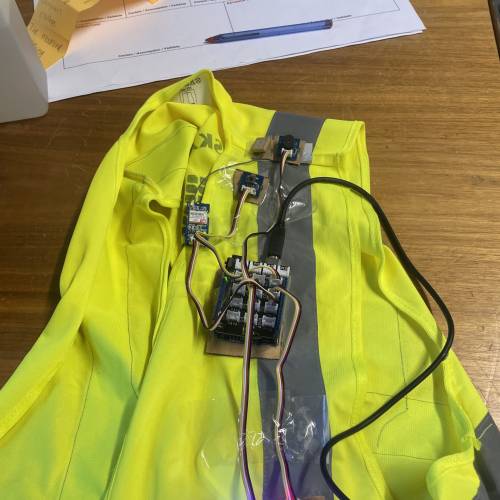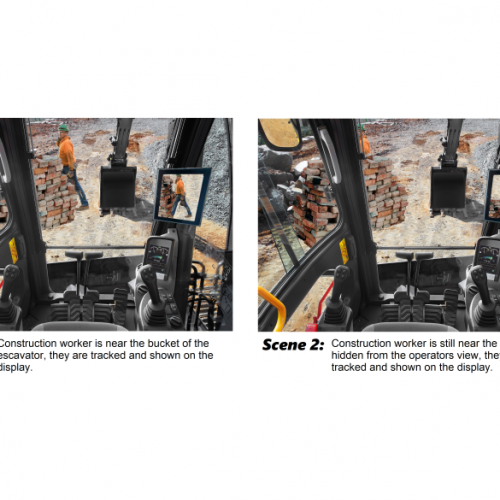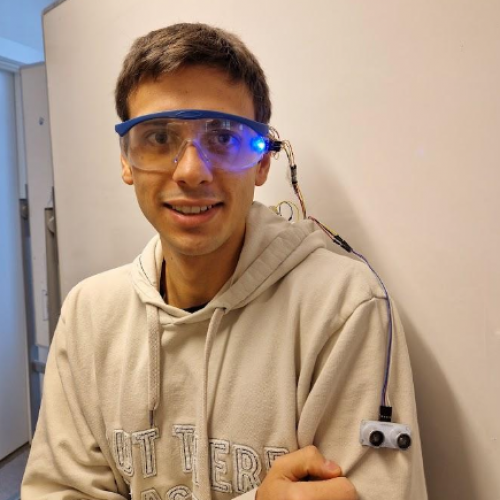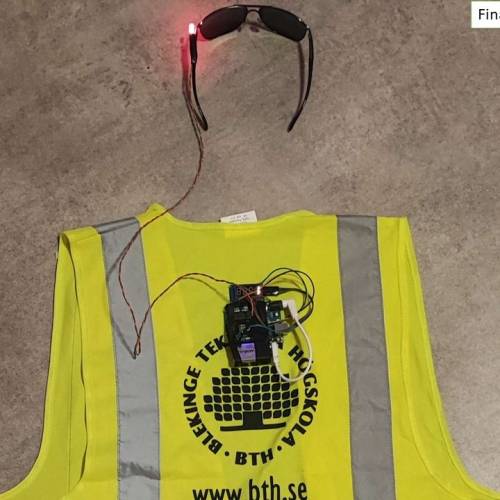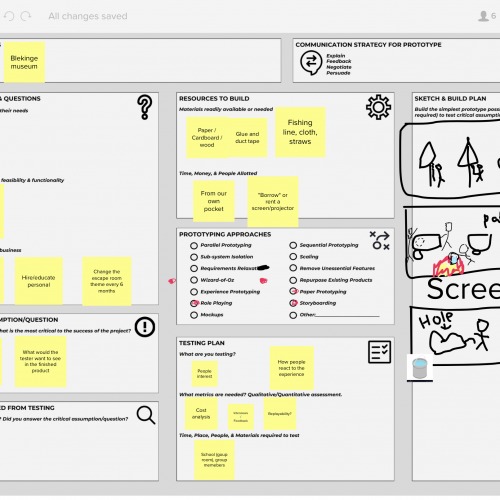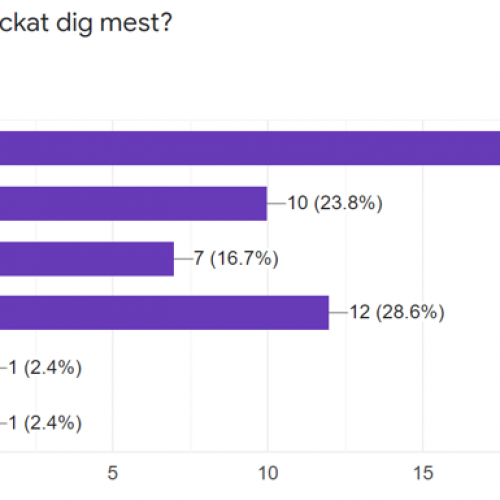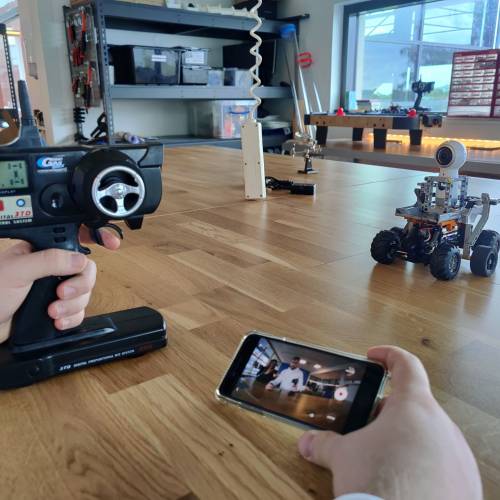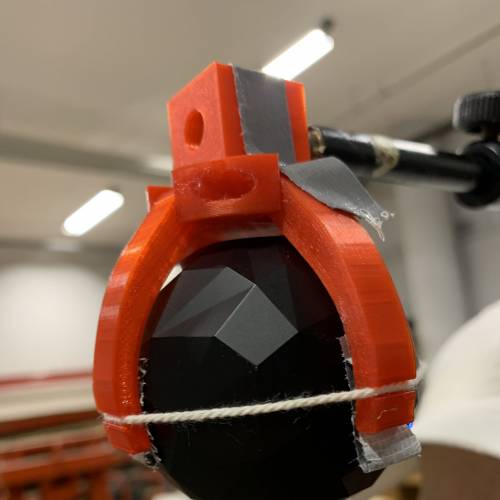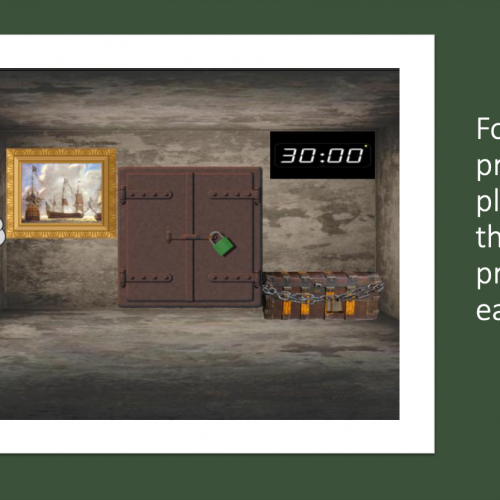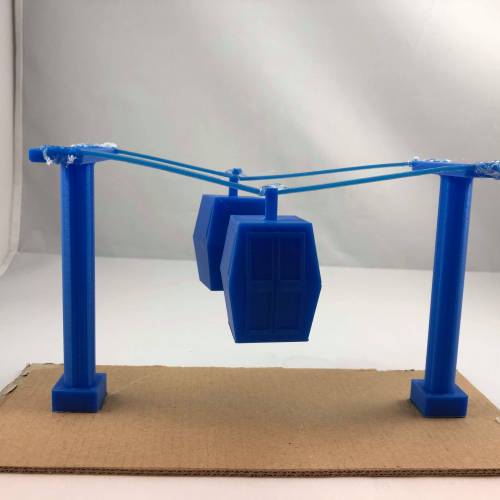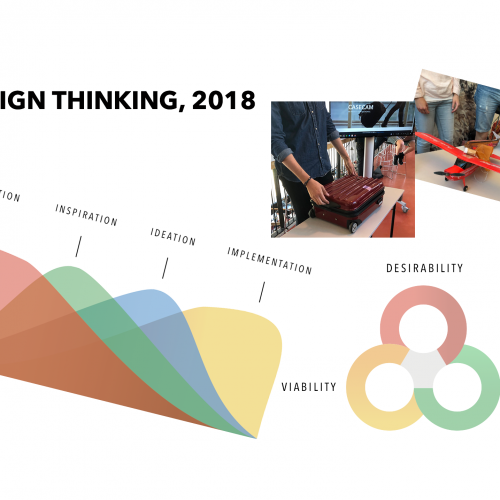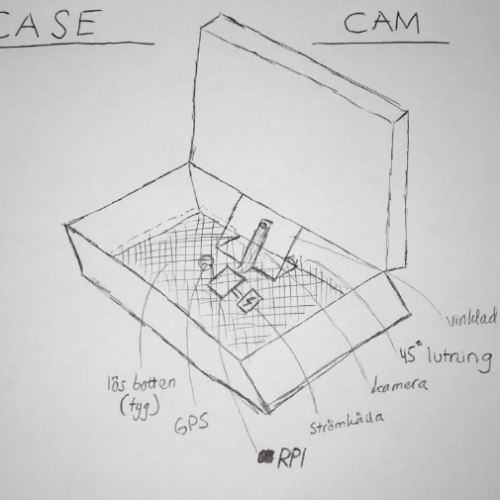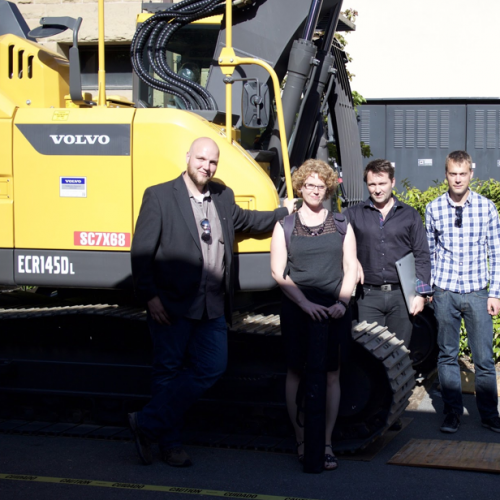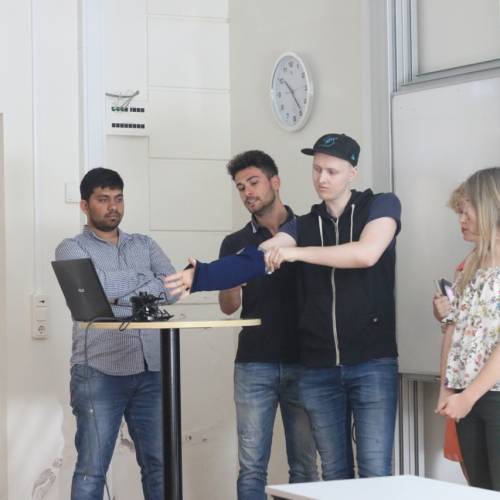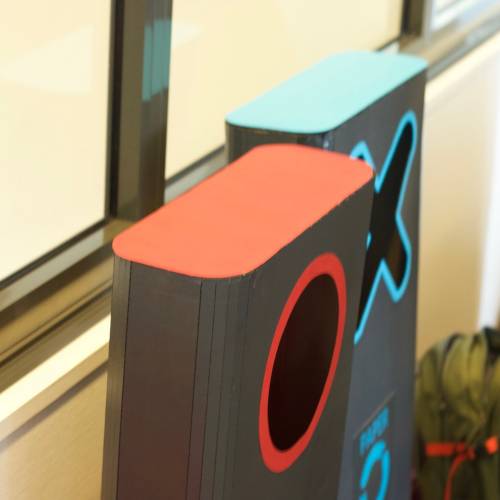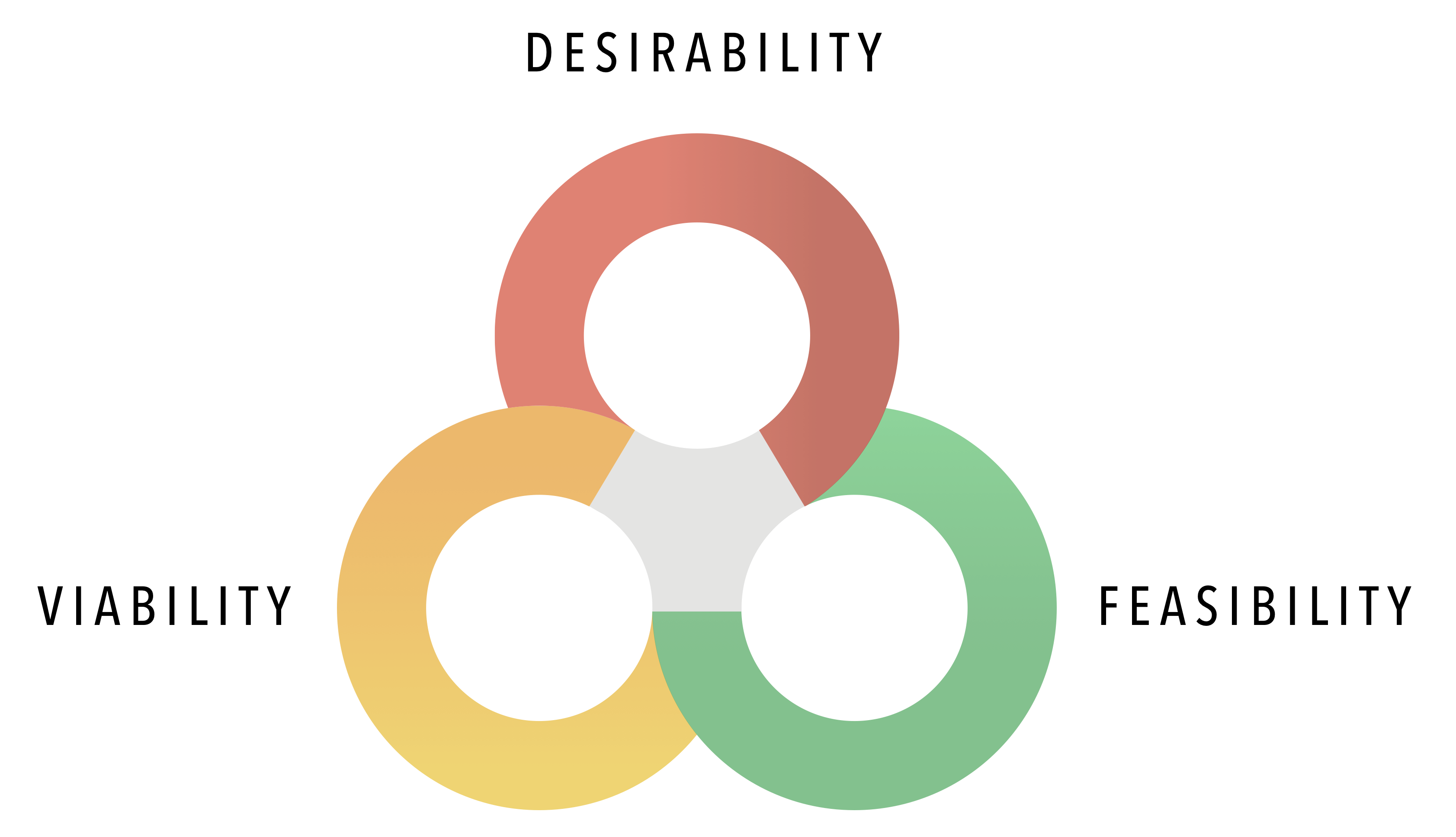Design Thinking is a methodology course where the students are presented with methods, tools, and processes for being able to develop user-centred innovative solutions.
Design Thinking is about merging user benefits, technical feasibility and commercial viability in a sustainable business offer. It is a methodology where all technical and business-focused innovation activities are permeated by a human-centered design philosophy. The course covers design and development of new products (i.e., products and services) and new (technical and organizational) processes, with focus on methods, tools, and strategies for the early phases of the innovation process.
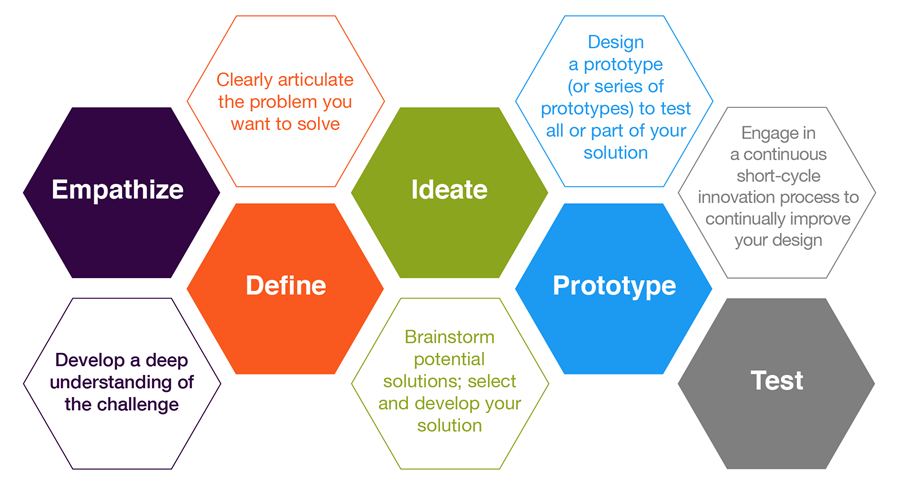
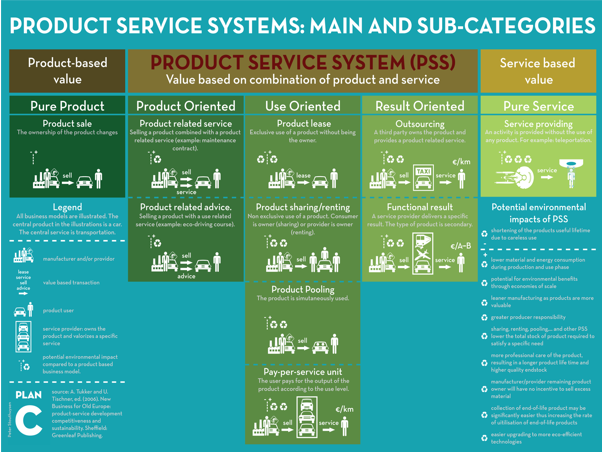
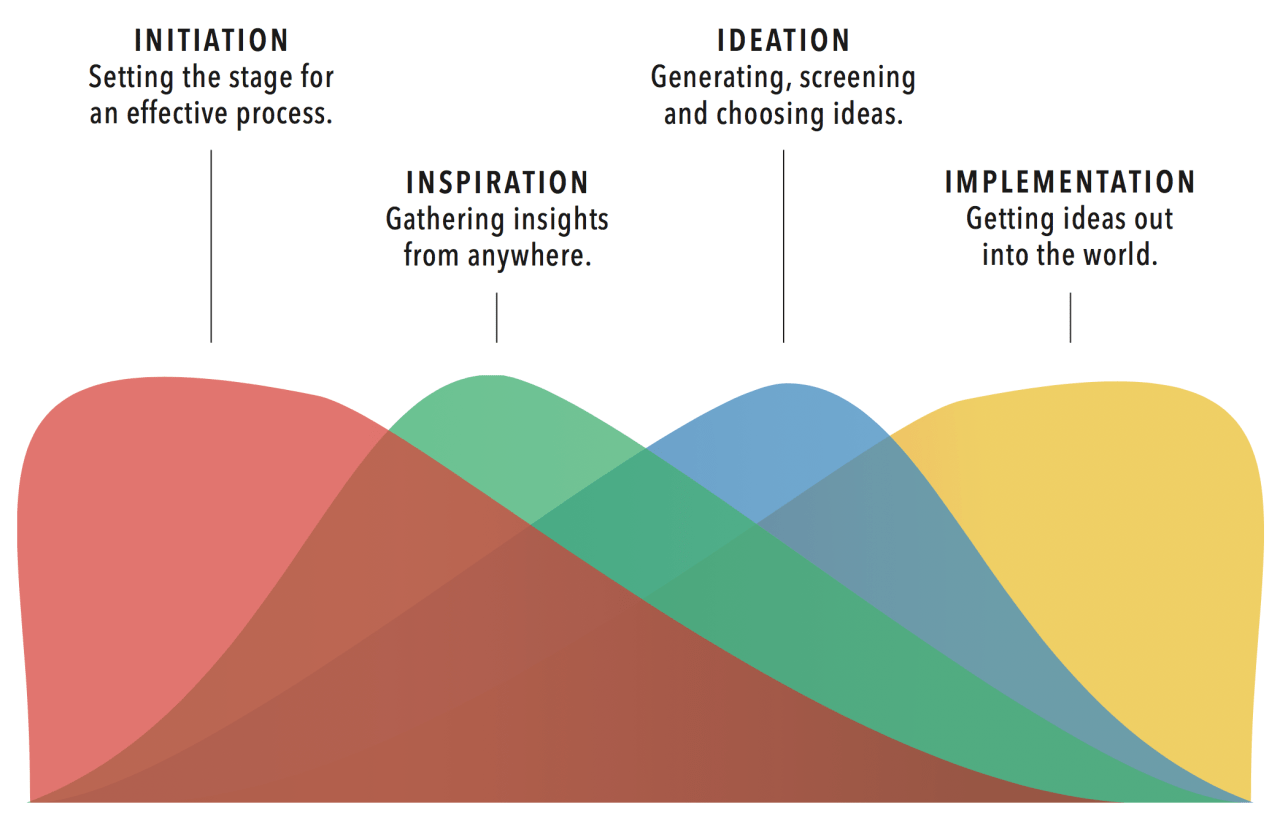
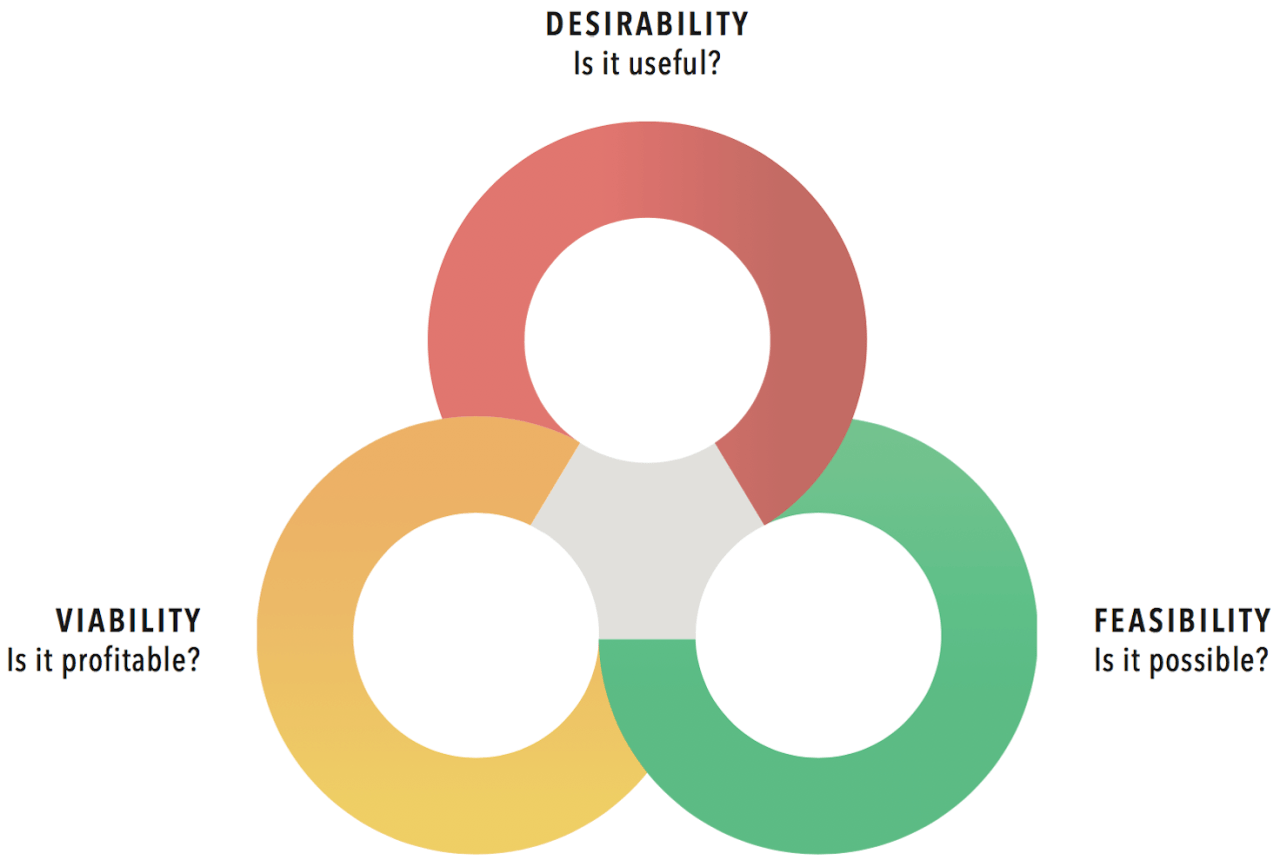
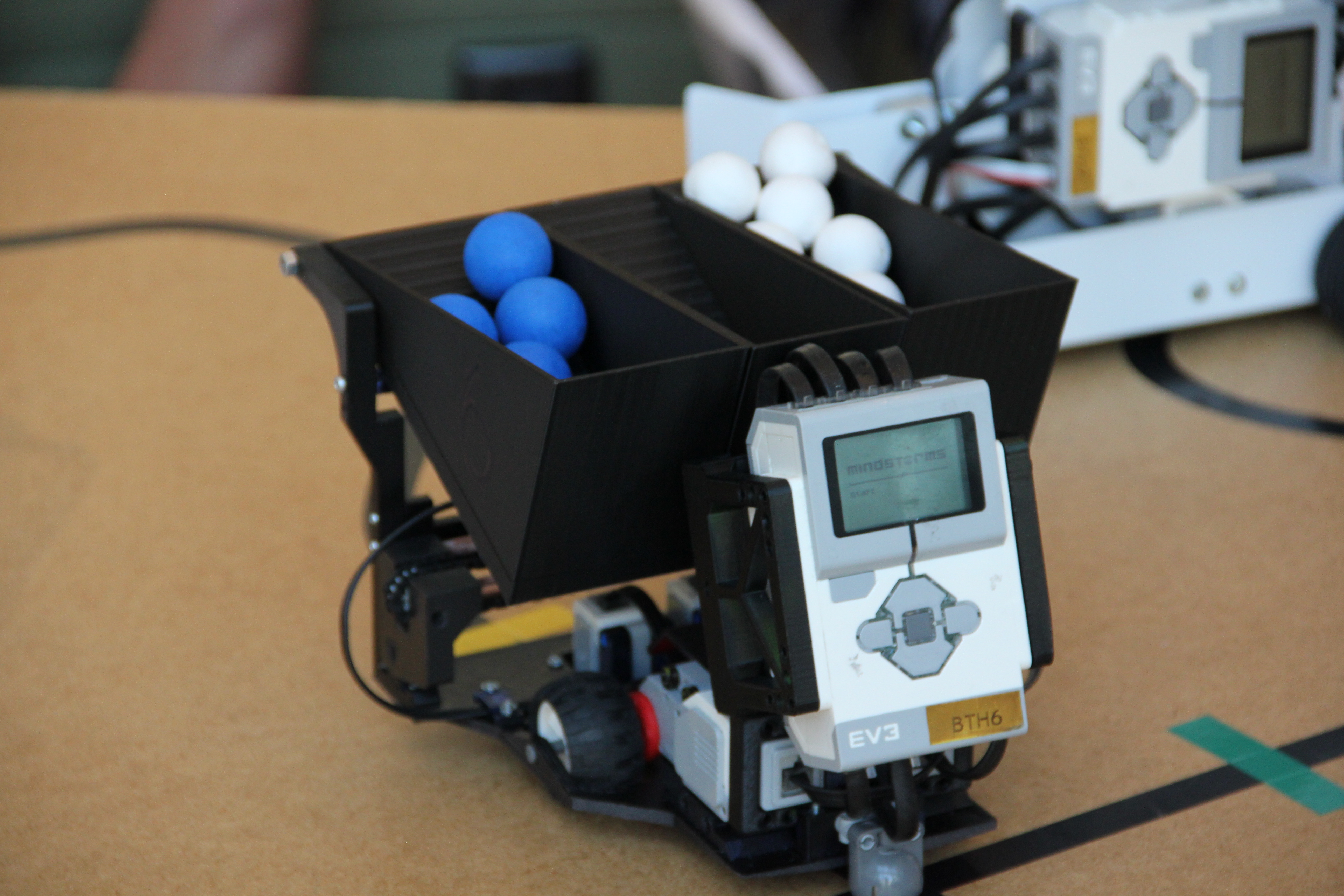
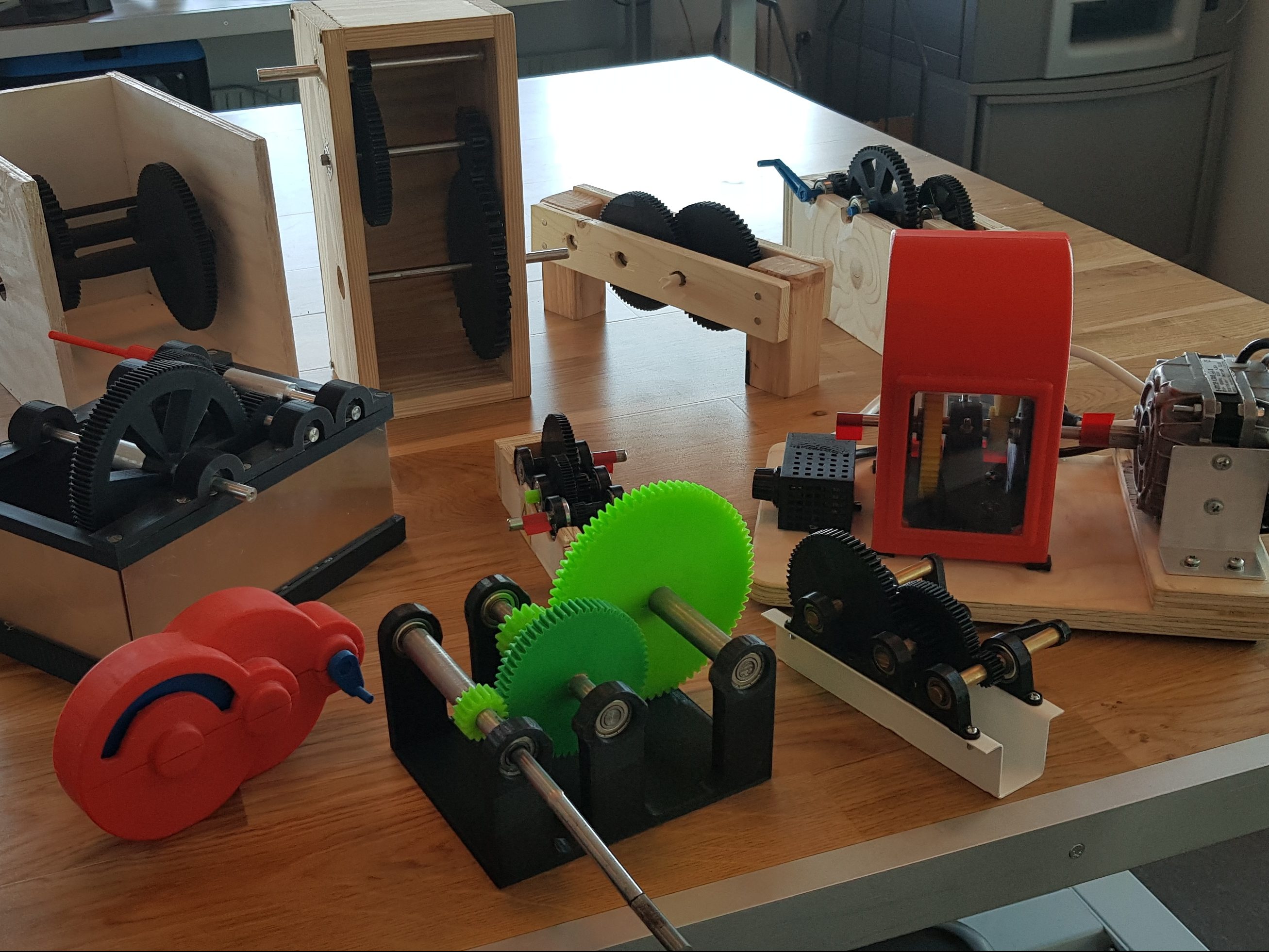
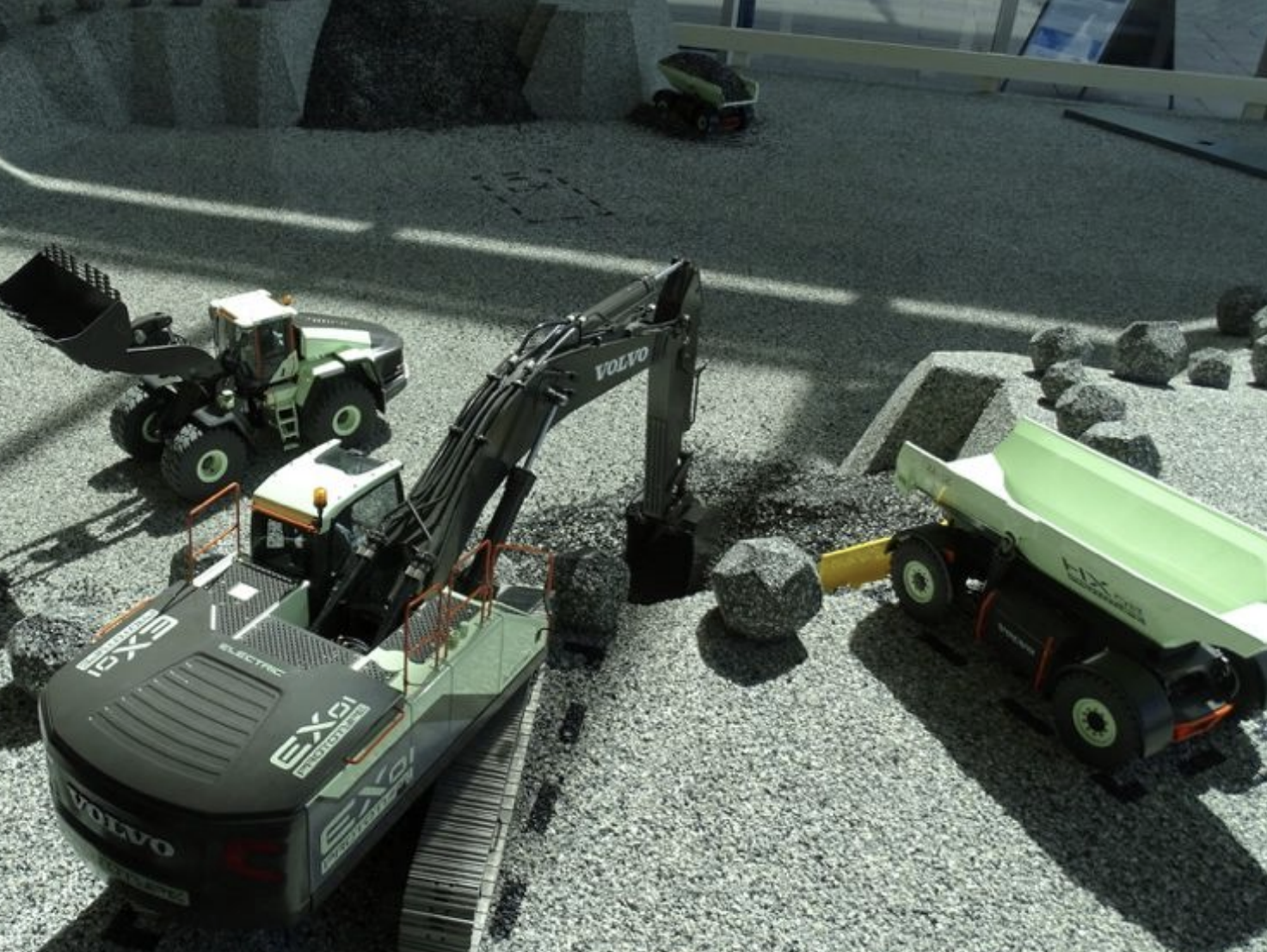
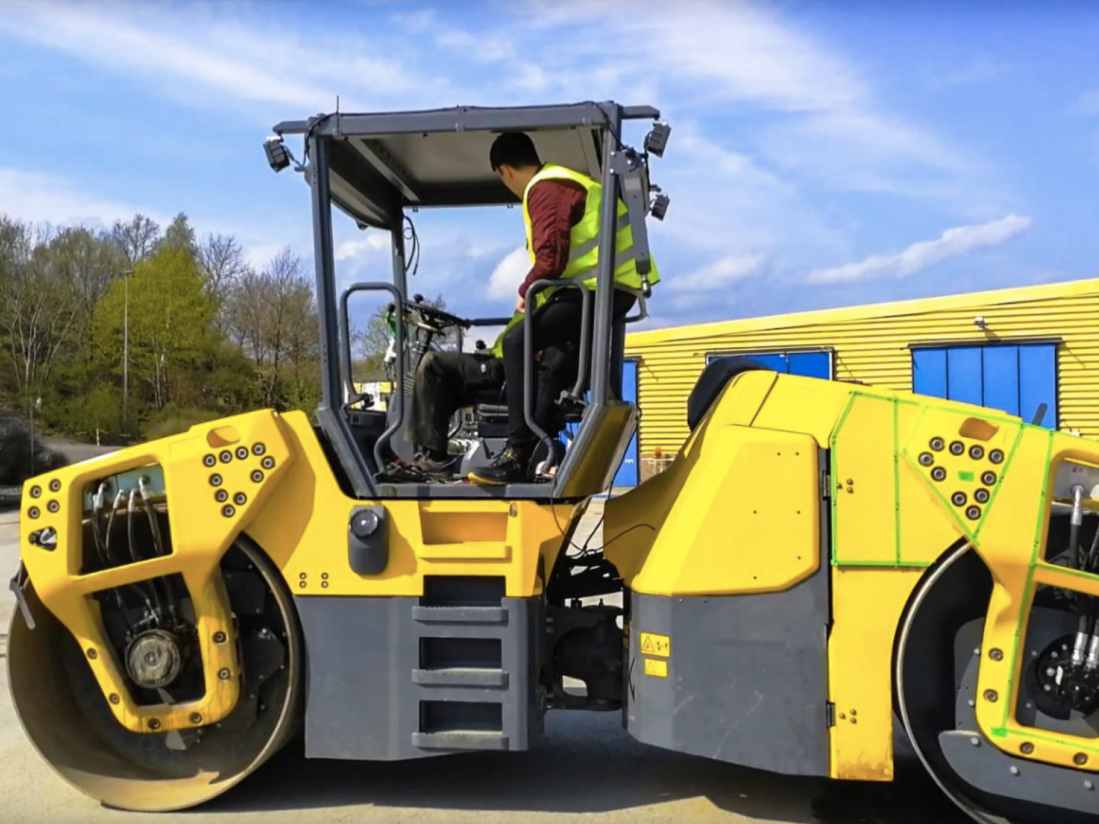
Company participation in Design Thinking
Companies are invited to present challenge topics for the students to apply their engineering skills using a Design Thinking process. By providing open-ended challenges for a team of students to work on, companies will have access to prototypes and visualizations of what might be future product/service offerings, aimed at defined user-bases.
The idea is that the product development projects of the course should be clearly anchored in close cooperation with industrial companies or with real societal needs, so it is important to develop good project ideas to work with partner companies.
The work is performed in project teams with tutor support from both industry and academia. The collaboration provides benefits for both students and industry partners:
- Students get to learn the innovation process and accompanying tools by applying them in real situations.
- Industrial partners gain access to innovative thinking and methods, conducted by well-trained students, and supported by coaches, who are not limited by traditional working patterns.
Course duration
Each year, roughly from 1 September to 31 October.
When to submit proposals
To fit new projects proposals with the start of the fall semester, it is recommended to submit project proposals preferably in due course before the summer vacations, but no later than end of August.
Contact person
Christian Johansson Askling, course responsible
Email: cmj@bth.se
Telephone: +46-455-385576
The aim of the course is to allow the student to gain insights and skills in how to create both technical and social innovations. The course deals with the design and development of new products (both goods and services) and new (technical and organizational) processes, with particular focus on methods, tools, and strategies for the early stages of the innovation process.
The course is based on a Design Thinking process – a process for managing complex issues and contexts where the designer pair human needs with feasible solutions in a market-based offering – that includes lectures and exercises related to theories of design processes and methods within design and innovation. Students will actively search for and analyze users' needs to then develop ideas, concepts, and detail solutions to match those needs. Being able to combine profitability, feasibility, and desirability in a total offer is of crucial importance to PSS.
Design Thinking is a human centered approach where needfinding is at the core.
Design Thinking is about giving the student insight and ability to match people's wishes and needs with what is technically feasible in a vigorous business offer for increased customer value and market opportunities. It is a method and approach that provides and develops tools to penetrate all innovation activities with a human-centered design philosophy.
Course formalities
Course Purpose
The course is based on a process of design thinking – an approach to deal with complex issues and contexts in which the designer matches insights about the needs of people with feasible solutions in a sustainable and competitive market offering. The purpose of the course is that the participant should obtain very good knowledge and skills in the development of both technical and social innovations, and how they are organized into generic and customized development processes.
Participants will gain knowledge and skills in project management, needfinding, ideation, concept design, prototyping, and development of business models to ensure the creation of value offers. With these experiences, skills, and knowledge, participants will gain a good position to be attractive to employers.
Course Contents
The course content is based on a mix of project – which gives participants the opportunity to experience the design process – and lectures – which is characterized by a mixture of short theory review (of methods, tools, and strategies for design and innovation) and active work in different group constellations.
The course addresses topics such as:
- Design Thinking criteria (desirability, feasibility, viability)
- Development processes
- What is Innovation?
- Innovation Process (Initiation, Inspiration, Ideation, Implementation)
- Needfinding
- Benchmarking, trend watching, and tech watching
- Ideation
- Concept design
- Prototyping and prototype development
- Value proposition
Aims & Learning Outcomes
On completion of the course, the student will be able to:
- describe and analyse how development of new products (hardware and services) and new processes are organized.
- describe and relate to key dimensions and characteristics of a generic design thinking process.
- identify and apply appropriate methods and approaches in each dimension of the process.
- describe and reflect on how innovations (e.g., products and/or services) are developed.
- explore and analyse needs, trends and technologies.
- create and analyse ideas for how to address the identified needs.
- generate and analyse conceptual solution proposals.
- critically, independently, and creatively identify and generate framing of innovation projects
- plan and perform a team-based design project
- verbally and in writing argue for and reflect on their findings and conclusions, in dialogue with other students.
Learning & Teaching
The course focuses on providing participants knowledge and skills to plan, proceed with and critically assess development project of innovation. Through lectures, exercises, individual work, participation in joint exercises, and reflection on experiences and learning, the student creates an understanding of design thinking as a methodology and approach for innovation development. The course focuses on problem-based learning, where participants' active participation and reflections, both in teams and individually, is key to good learning. Participants carry out project work and assignments in teams, and share their experiences and lessons learned through written documentation, group work, and presentations. Participants will also present and reflect on their learning individually. Techniques for peer evaluation and group coaching (feed forward) is used throughout the course to ensure critical reflection regarding the process and the results.
The course will be provided in English.
Course literature
The course is based on theoretical and working materials that is referred to as a 'workbook', which are distributed to students during the course.
- Lewrick, M., Link, P., Leifer, L. (2018) The Design Thinking Playbook : mindful digital transformation of teams, products, services, businesses and exosystems. Wiley. ISBN 978-1-119-46747-2
Reference literature:
- Furr, N. & Dyer, J. (2014), The Innovator's Method: Bringing the Lean Startup into Your Organization, Harvard Business Review Press, ISBN: 978-1-62527-146-4.
- Dyer, J., Gregersen, H. & Christensen, C.M. (2011), The Innovator's DNA: Mastering the Five Skills of Disruptive Innovators, Harvard Business Review Press, ISBN: 978-1-4221-3481-8.
- Brown, T. (2009), Change By Design: How Design Thinking Transforms Organizations and Inspires Innovation, Harper Business, ISBN: 978-0061766084.
- Kelley, T. & Littman, J. (2001), The Art of Innovation: Lessons in Creativity from IDEO, America's Leading Desing Firm, Doubleday, ISBN: 0-385-49984-1
Scientific articles and industrial case studies are distributed during the course.
Course examiner
Assistant Professor Christian Johansson Askling
Finalized projects
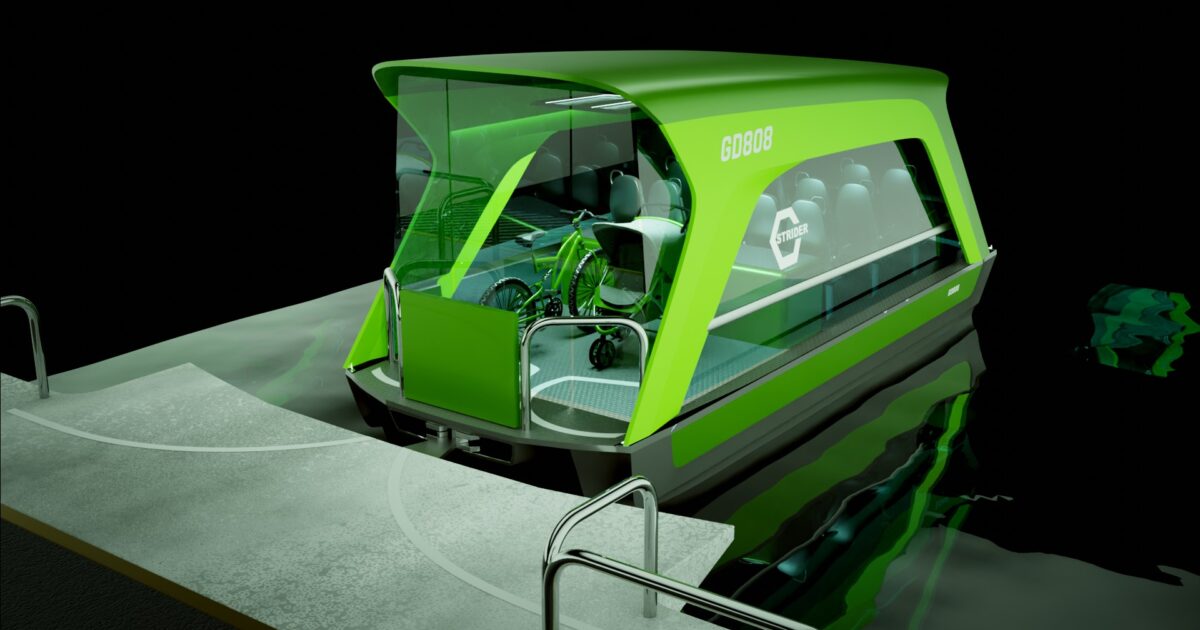
Docking solution for Cstrider
Magnetic docking solution Programme: Mechanical Engineering / Industrial Economy Course: MT2569 – Design Thinking Corporate partner: CSTRIDER Challenge: Use needfinding to find needs of users for Cstrider and create a solution for Cstrider that benefits both users and the company Solution: Our solution was a magnetic docking solution that uses an electromagnet to secure the…
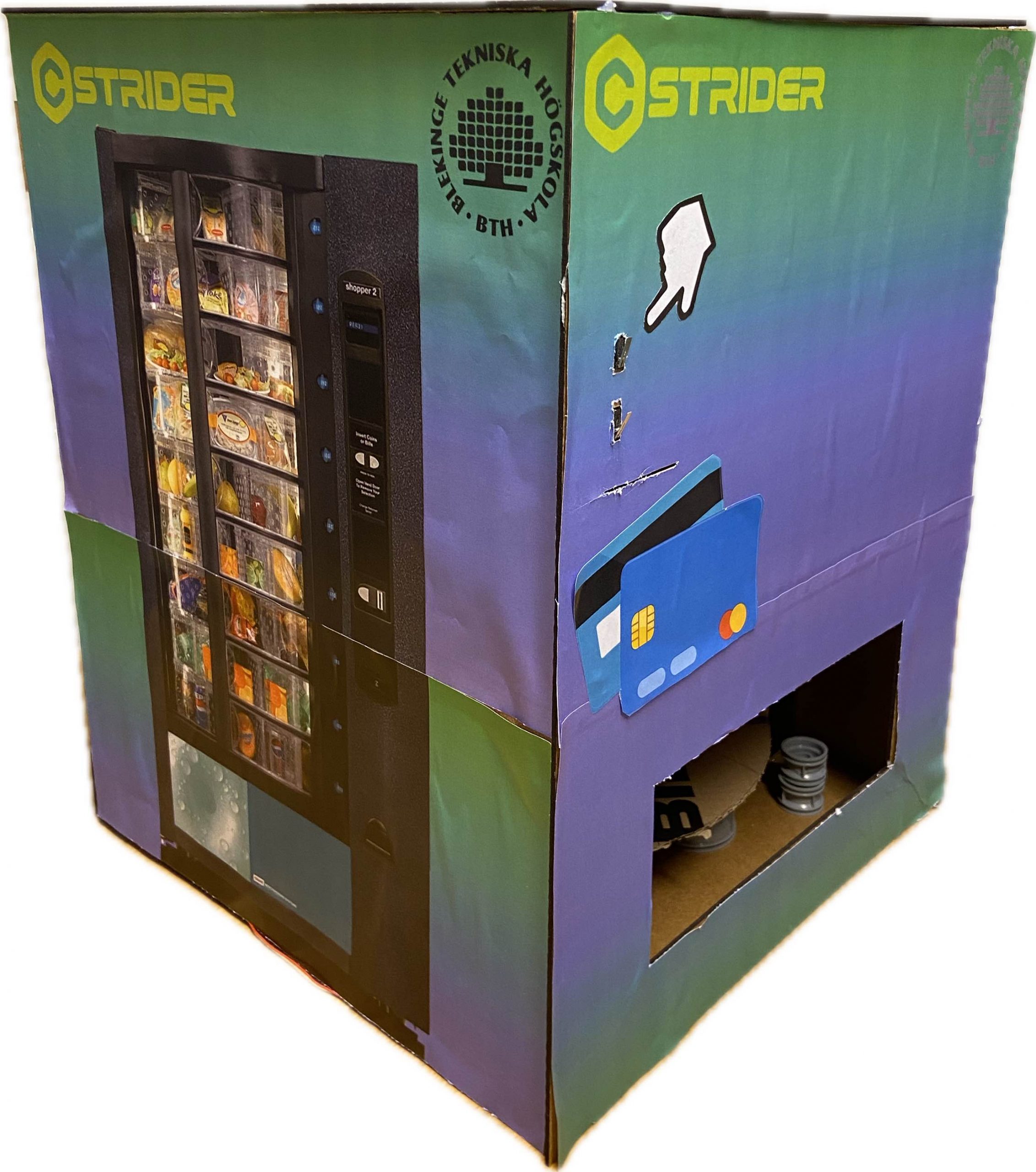
Vending Machine
Sea Taxi Cstrider Programme: Mechanical Engineering Course: MT2569 – Design Thinking Corporate partner: CSTRIDER Challenge: We are focused on developing the CStrider sea taxi by adding new ideas and solutions that enhance its functionality and make it a practical addition to public transport. Solution: A vending machine to entertain passengers during the trip, making the…
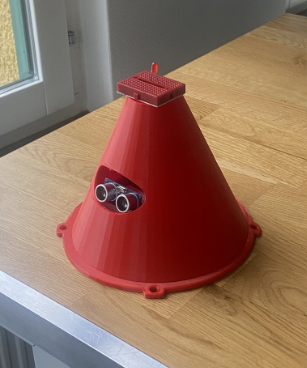
Mushroom pods
Technological innovation for Third-party people safety Programme: Mechanical Engineering / Industrial Economy Course: MT2569 – Design Thinking Corporate partner: Volvo Construction Equipment Challenge: Find new solutions to ensure Third-party people safety around construction site Solution: Pods installed on the ground to detect the entrance of a person, alert the person that this is not…
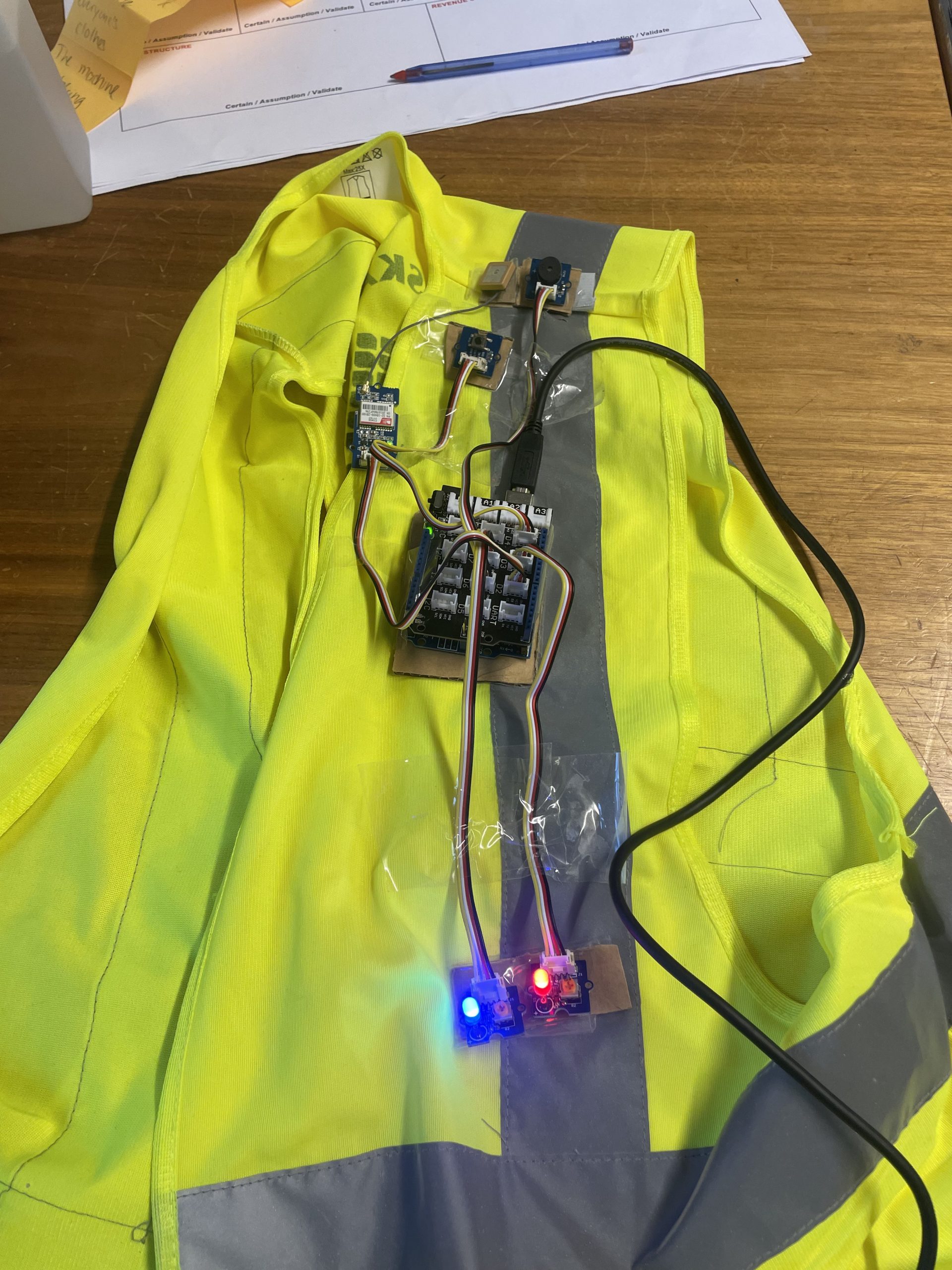
Awareness-vest
Situational safety is key Programme: Mechanical Engineering / Industrial Economy Course: MT2569 – Design Thinking Corporate partner: Volvo Construction Equipment Challenge: To increase the safety at a construction site. Solution: A reflective vest with vibration motors, lights, a GPS and a button. Used on construction sites to notify workers if an accident has happened.…
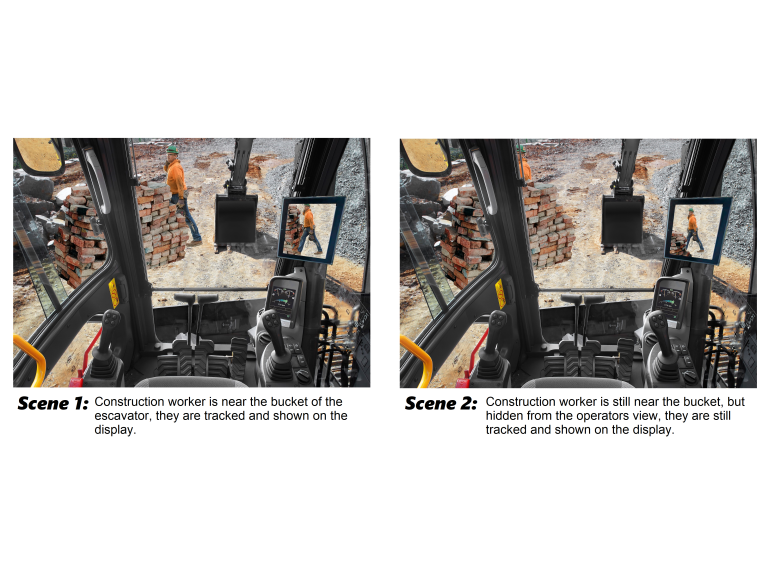
Clairvoyance Orb
360-vision aid for machine operators Programme: Mechanical Engineering / Industrial Economy Course: MT2569 – Design Thinking Corporate partner: Volvo Construction Equipment Challenge: Lack of oversight on construction sites, risk of accidents because of pedestrians or other workers walking into the site. Solution: There's always a risk of accidents when people work around machines. One…
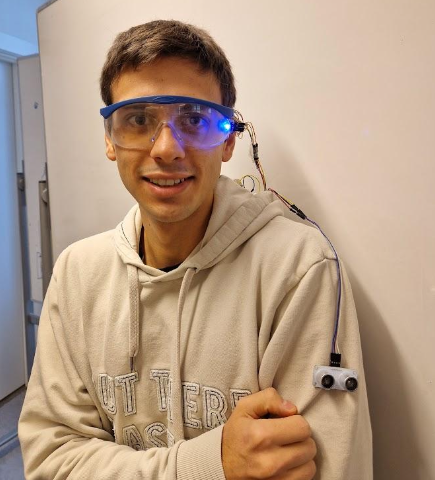
ViSafety
Rethinking the Way of Indicating Intended Machine Motions Programme: Mechanical Engineering / Industrial Economy Course: MT2569 – Design Thinking Corporate partner: Volvo Construction Equipment Challenge: Identify needs that arise on construction sites and develop a user-centered solution that helps people on construction sites to have a better overview and thereby enhances their safety…
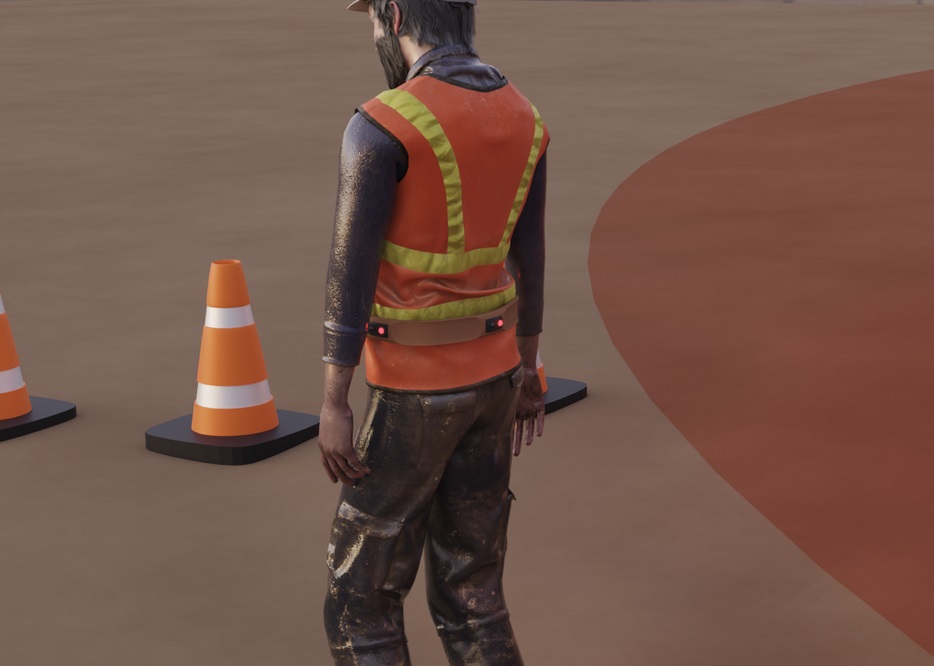
Haptic belt
Active safety measure for intended machine movements Programme: Mechanical Engineering / Industrial Economy Course: MT2569 – Design Thinking Corporate partner: Volvo Construction Equipment Challenge: The needfinding resulted in the recognition of a situation with the highest risk for an accident as reversing with heavy machinery, especially at night when it is dark outside…
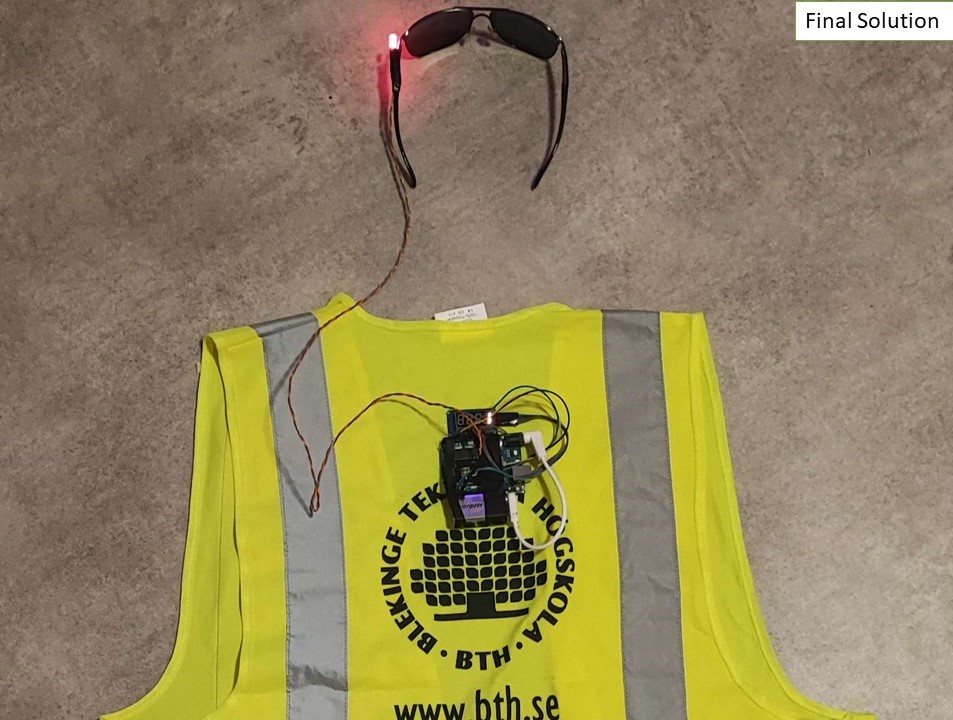
Posture detector
Measuring instument for detecting bad bend of the back on construction worksites Programme: Mechanical Engineering Course: MT2569 – Design Thinking Corporate partner: Volvo Construction Equipment Challenge: Identify problem regarding safety at construction worksites, with the focus point on datacollection. Solution: Bending your back in an incoorect way and lift heavy tools or material could…
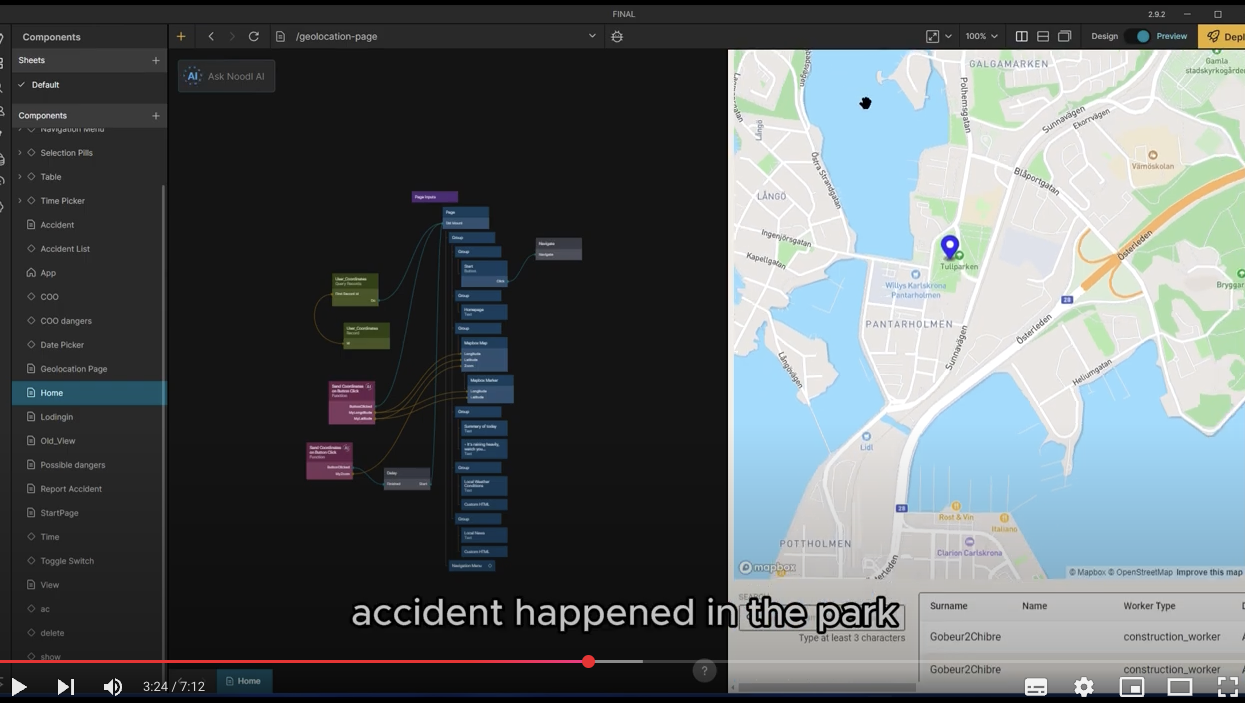
Digital Hardhat
"Construction Site Safety Starts with Us: Hardhat On, Hazards Gone!" Programme: Mechanical Engineering Course: MT2569 - Design Thinking Corporate partner: Volvo Construction Equipment Challenge: Find ways to further increase construction worksite safety, and develop a high fidelity prototype that achieves that goal. Solution: A software based application accessible on mobile phones or the…
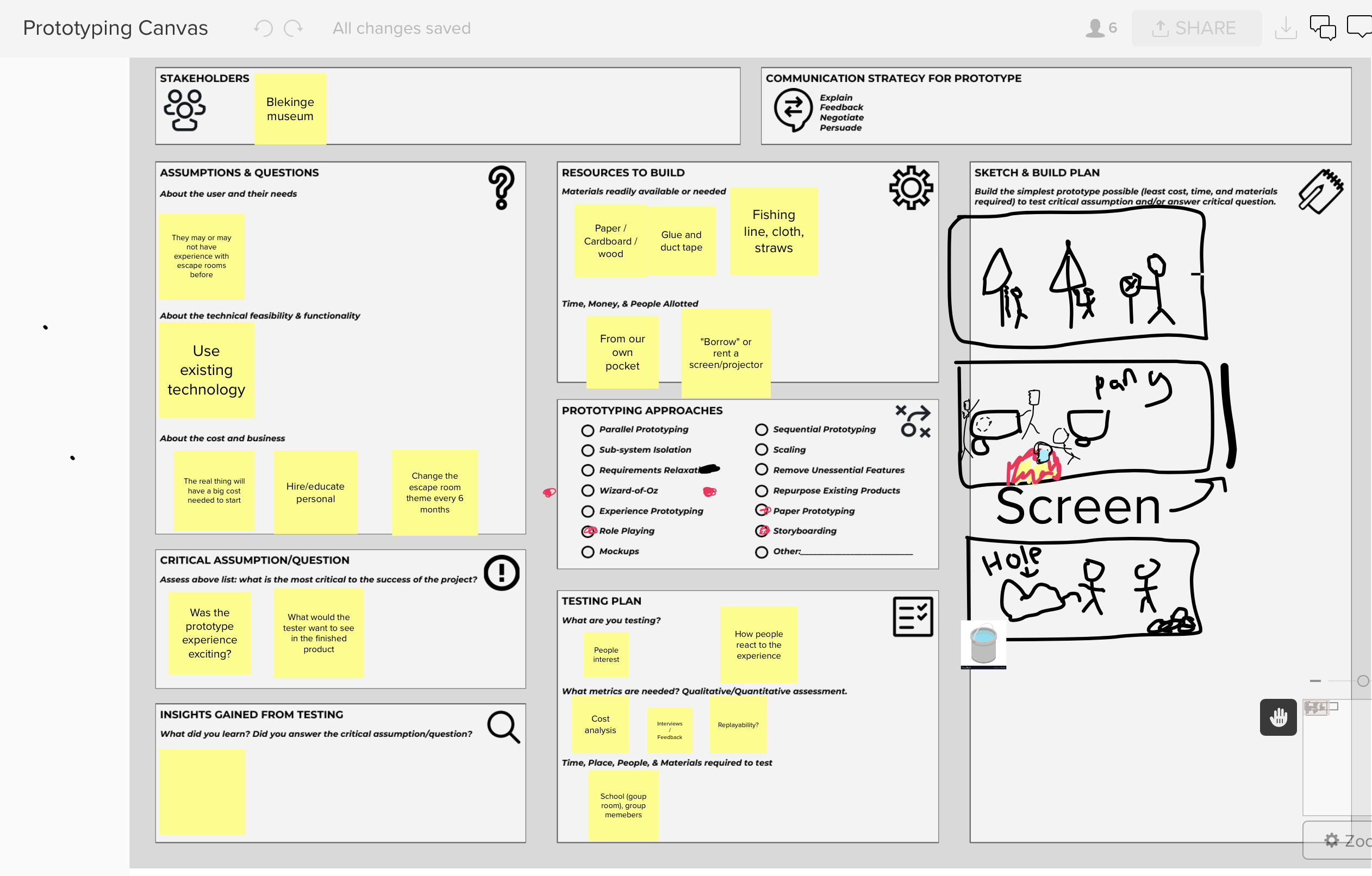
How not Tolouse
Increase attendance for Blekinge Museum Programme: M.Sc. Mechanical Engineering (including Erasmus exchange) and M.Sc. Industrial Management and Engineering Course: MT2569 Corporate partner: Blekinge Museum Challenge: The challenge was to find new ways to increase value and get more attendance to Museum. Solution: We came up with 2 solutions, one was to…
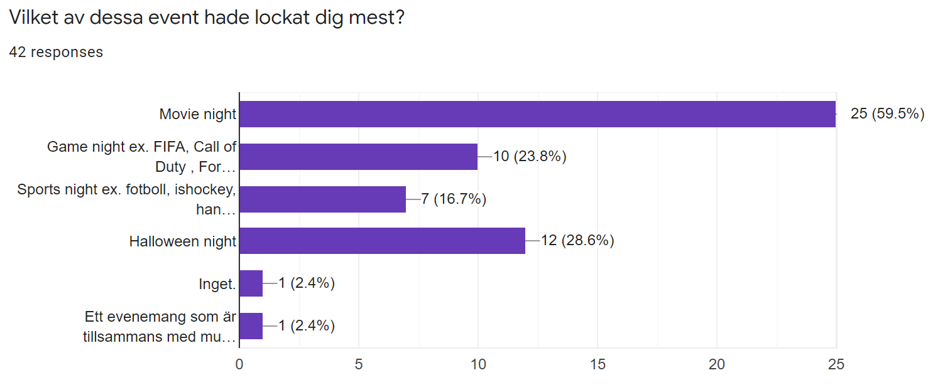
Attractive Museum
History can be fun Programme: Mechanical Engineering, classes 2014, 2016, 2017 Course: MT2569 Design Thinking Corporate partner: Blekinge Museum Challenge: The problem is that there is a lack of interest in museums and history related activities in the age-group between 15-25. There has been a lot of effort to bring…
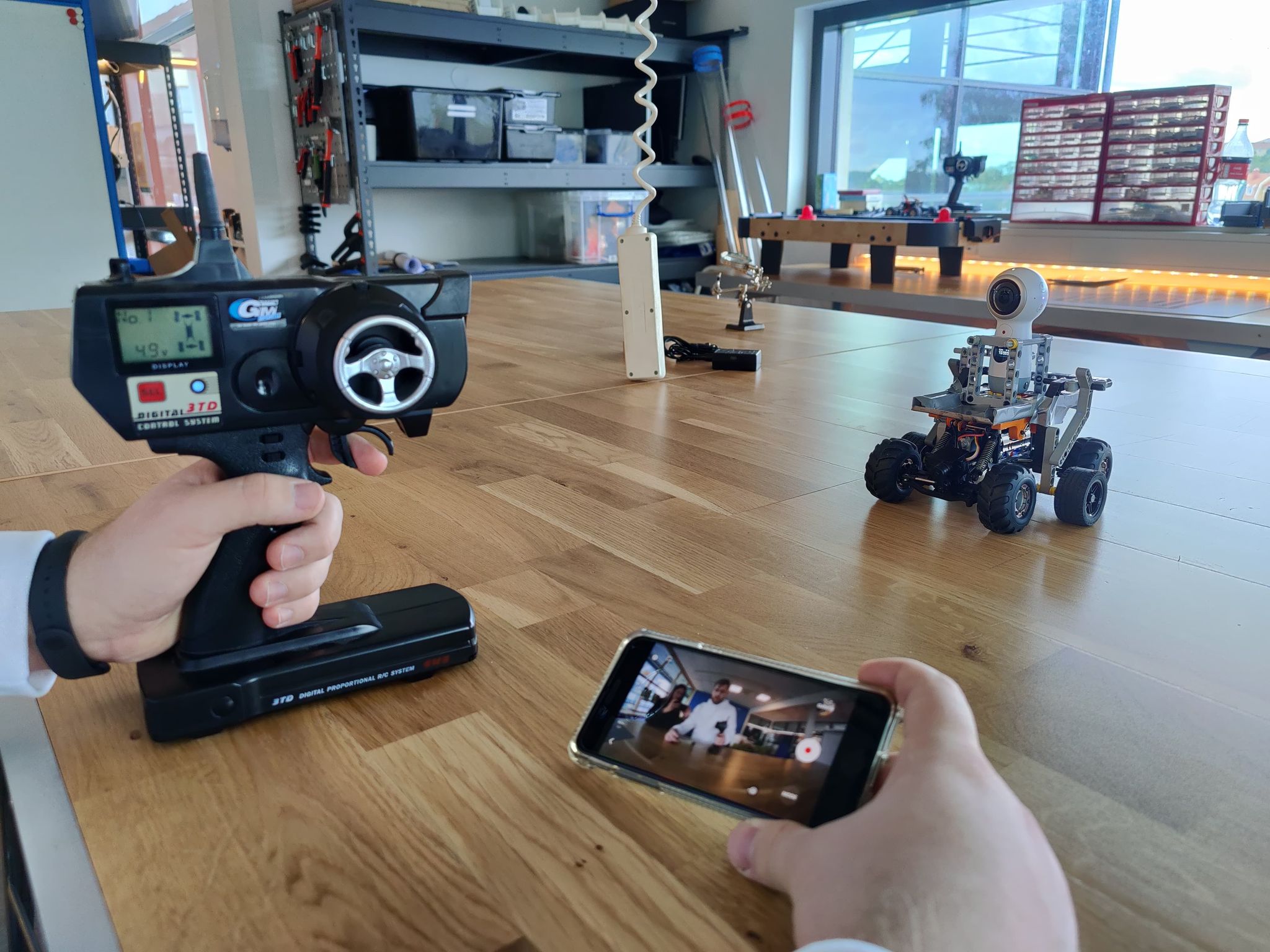
The Running Koala
Transforming a site visit to an experience at the office Programme: 2017 Mechanical Engineering Course: MT2569 Corporate partner: Volvo Construction Equipment Challenge: The challenge we have been given is to find a new and effective method for the Volvo Construction Equipment company to do needfinding from a distance. Solution: A…
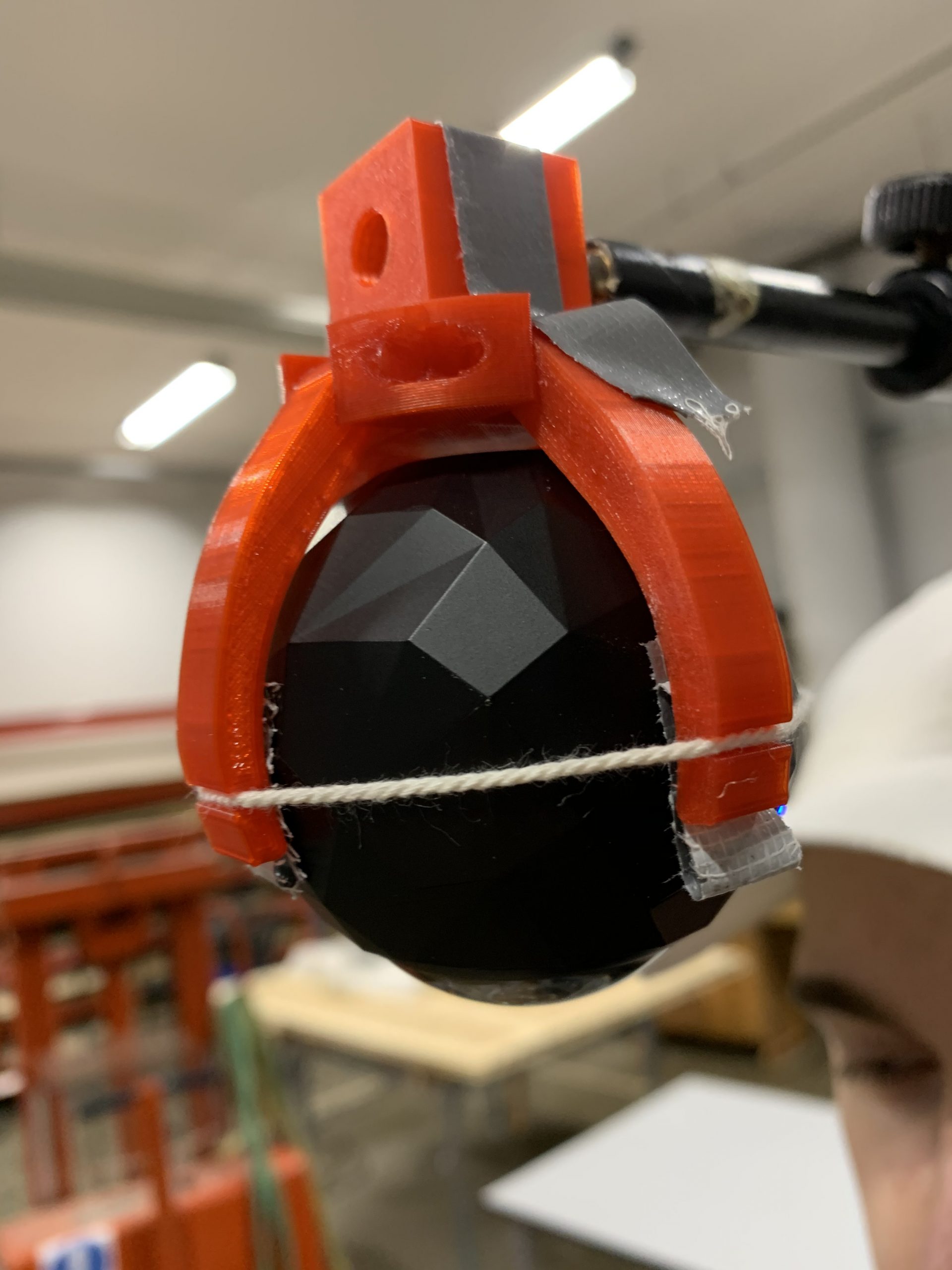
SOFI Back Pack Camera
SOFI: offering the future of information gathering solutions today Programme: Civilingenjör Maskinteknik / MSC in Mechanical Engineering, class of 2017 Course: MT2569 Corporate partner: Volvo Construction Equipment (Volvo CE) Challenge: Identify problems in distance work at Volvo CE and develop a solution that facilitates information sharing within the company. Solution:Due…
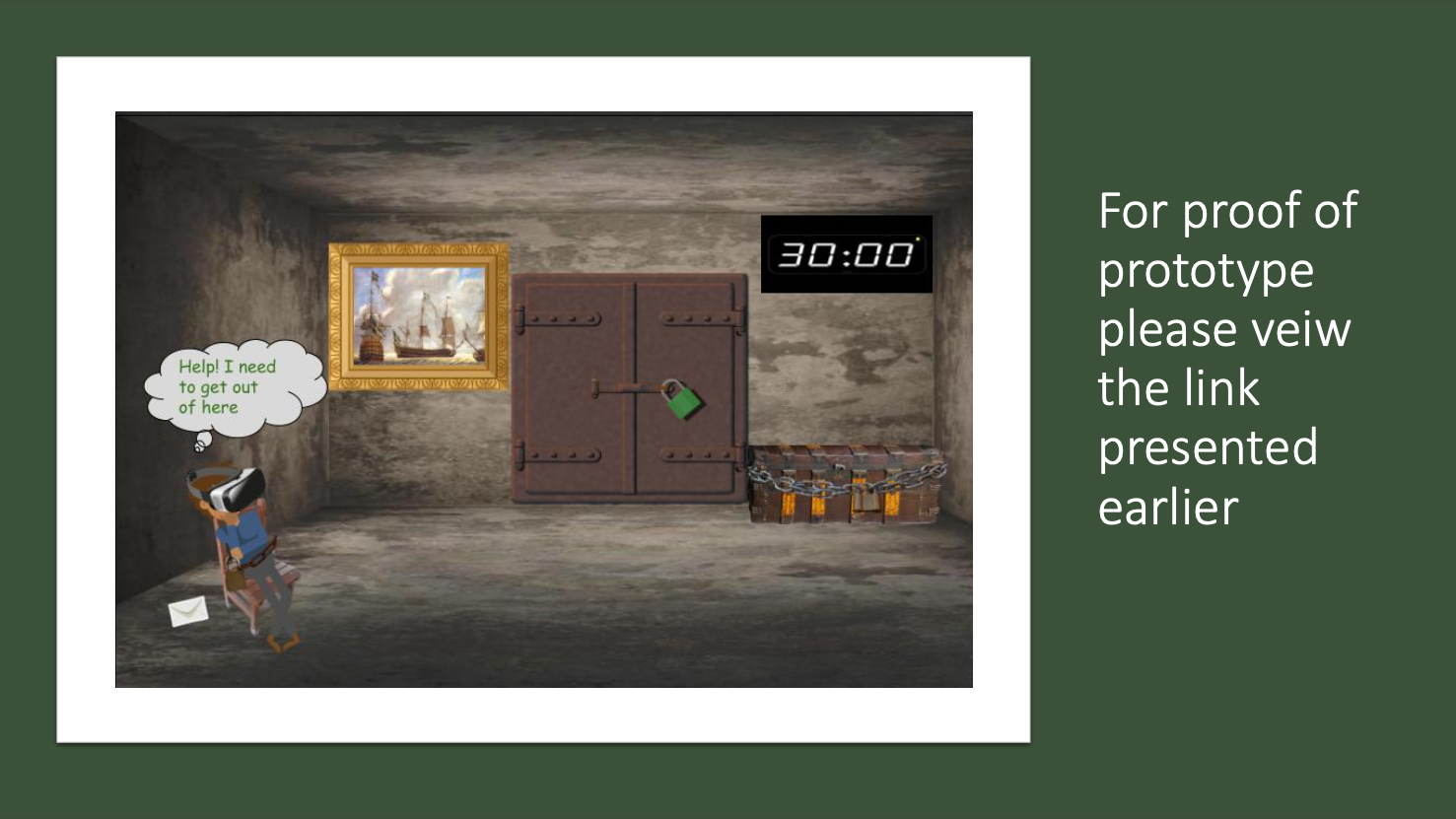
Blekinge Museum – Agenda 2030
World Heritage Karlskrona Programme: Mechanical Engineering – Industrial Economy Course: MT2569 Corporate partner: Blekinge Museum Challenge: As of today Blekinge Museum lacks customer segment in the age between 18-35, their main visitors are old people and families. The problem was to identify the root cause of why young adults don't…
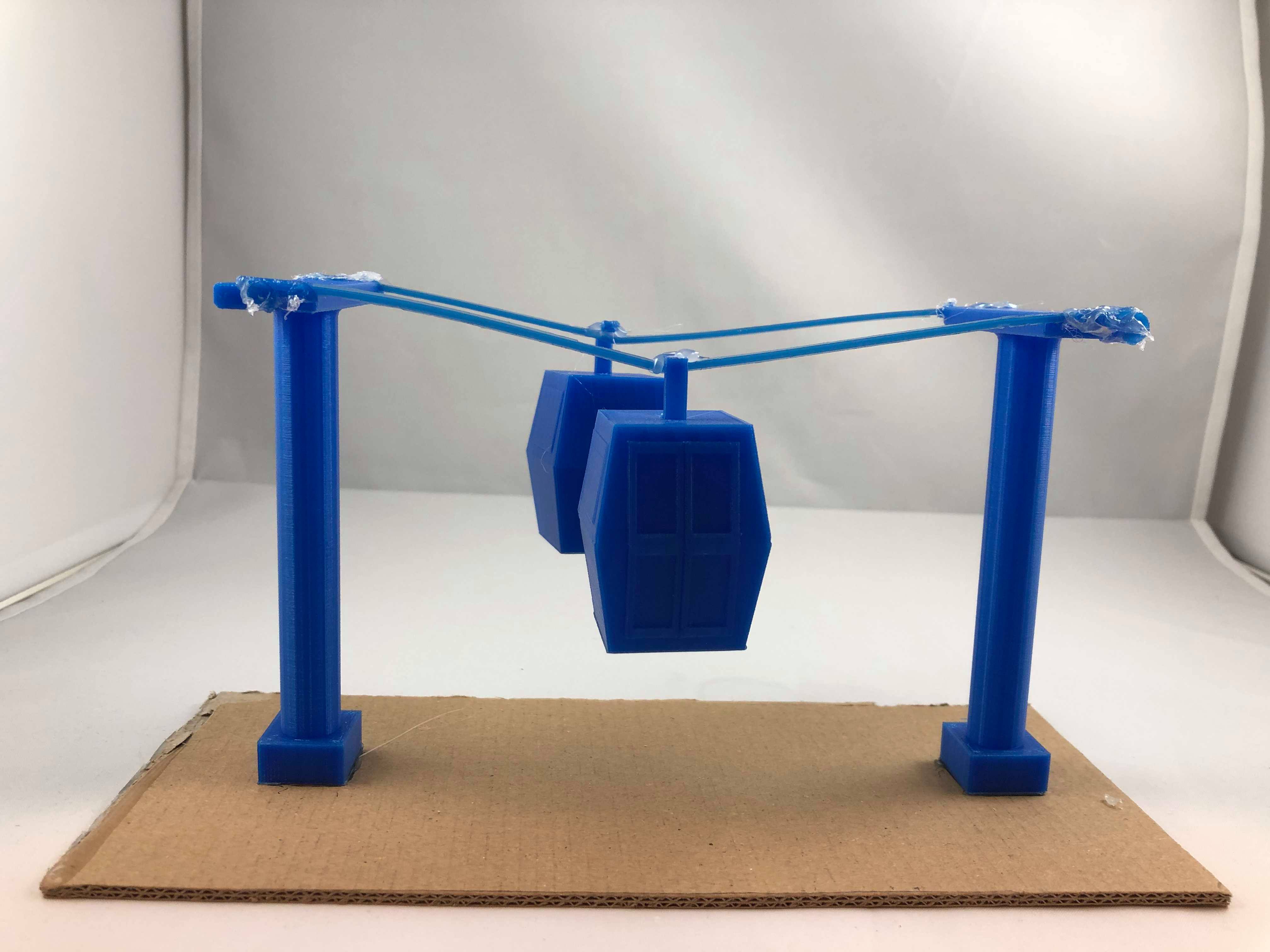
The gondola lift
Improving transportation for students Programme: Mechanical Engineering / Industrial Economy, class of 2015, Course: MT2564 Design Thinking Corporate partner: – Challenge: Try to improve the commuting for students in Karlskrona to BTH Solution:Our solition was a gondola lift that would have a route from Scandic to BTH via Långö. There…
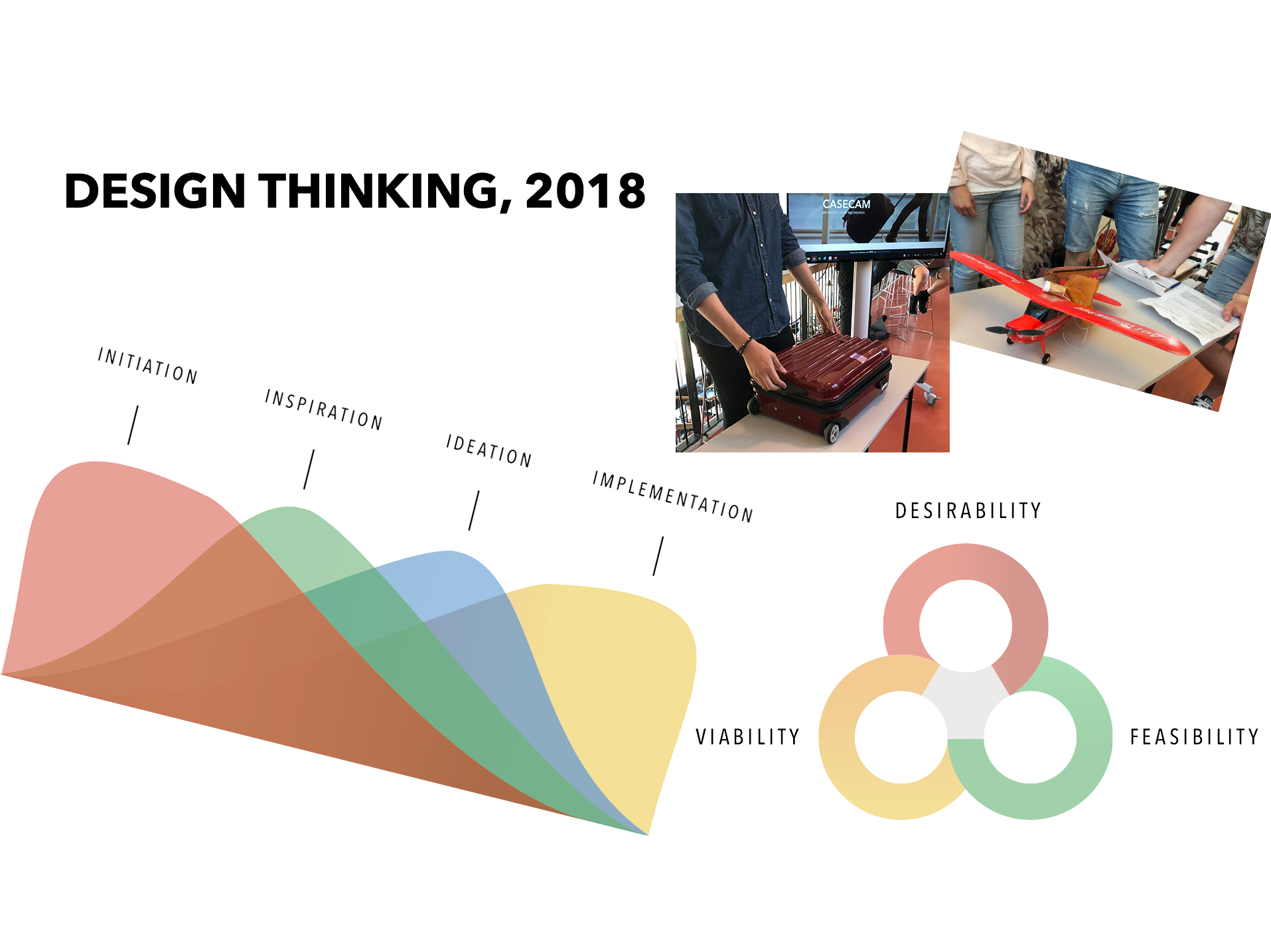
Design Thinking 2018
This year's iteration of the Design Thinking course (MT2547) has completed with a Design Expo at BTH where the students presented and demonstrated their results to other student peers, teaching staff, and general public as well as media. [caption id="attachment_6719" align="aligncenter" width="640"] Design Expo at BTH[/caption] Design Thinking depicts an…
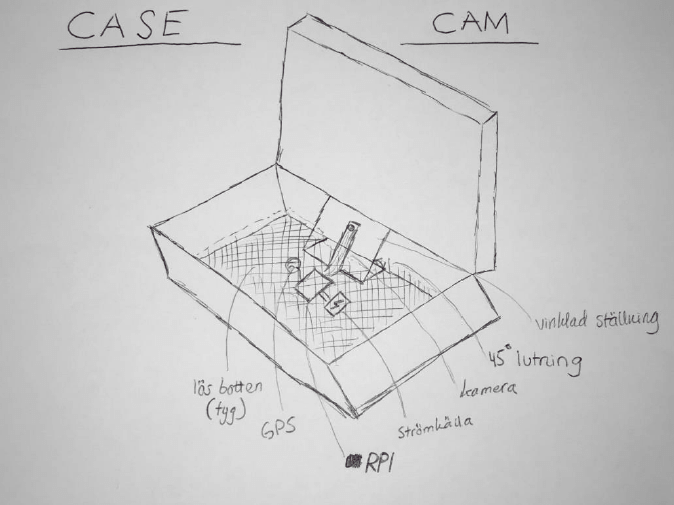
Casecam
We protect your belongings Programme: 2014 Master in Mechanical Engineering – Innovative and sustainable product development Course: MT2547 Corporate partner: Lockheed Martin Challenge: To create a groundbreaking innovation within Aerospace and security by using blockchain, human augmentation and/or autonomy machine learning. Solution: The solution was a security device that was placed…
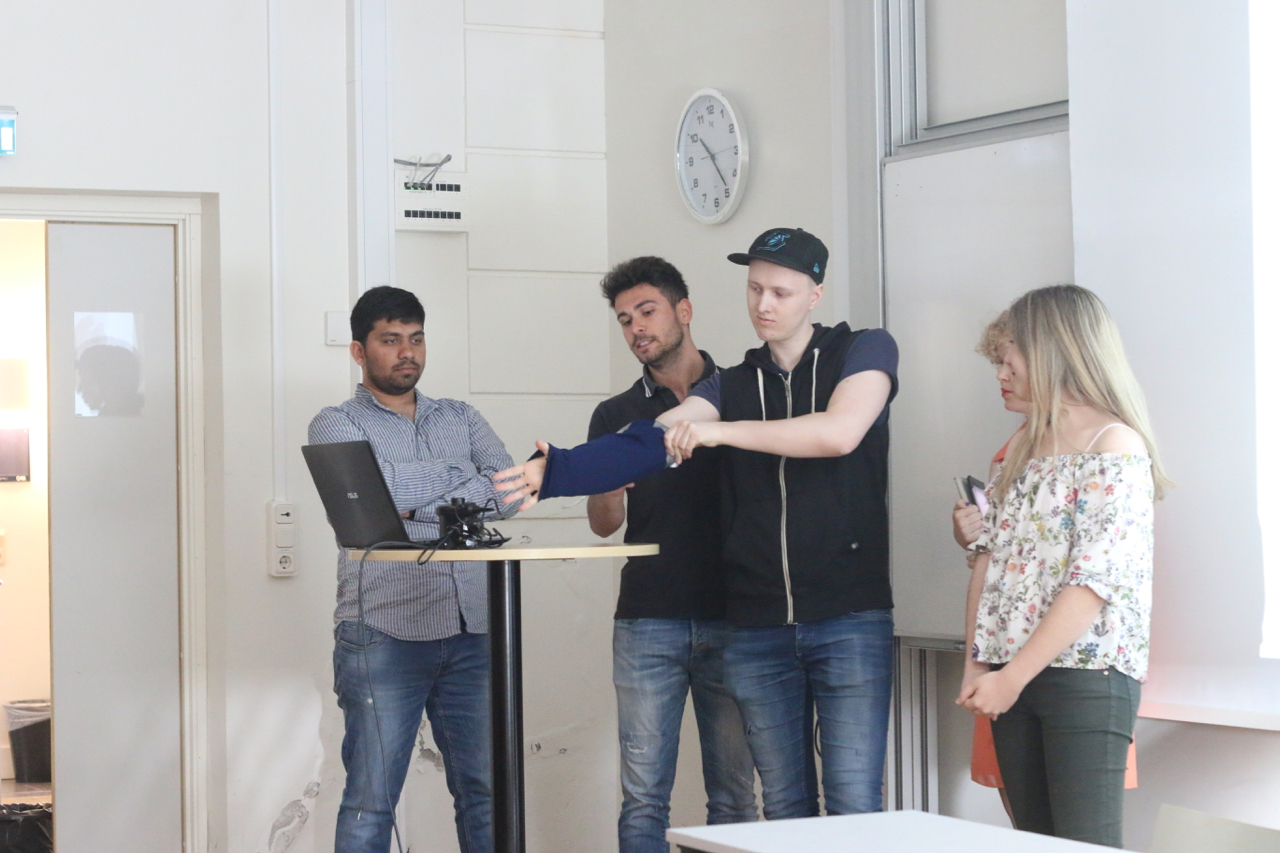
Designing for Lymphedema patients (MT2547)
In the Design Thinking course, students from the MSPI-program and the Mechanical Engineering MSc program have explored issues relating to diagnosis and treatment of Lymphedema. Based on need analysis, ideation, and a prototyping approach, the students have developed concepts for how to address these issues, focusing on merging user desirability,…
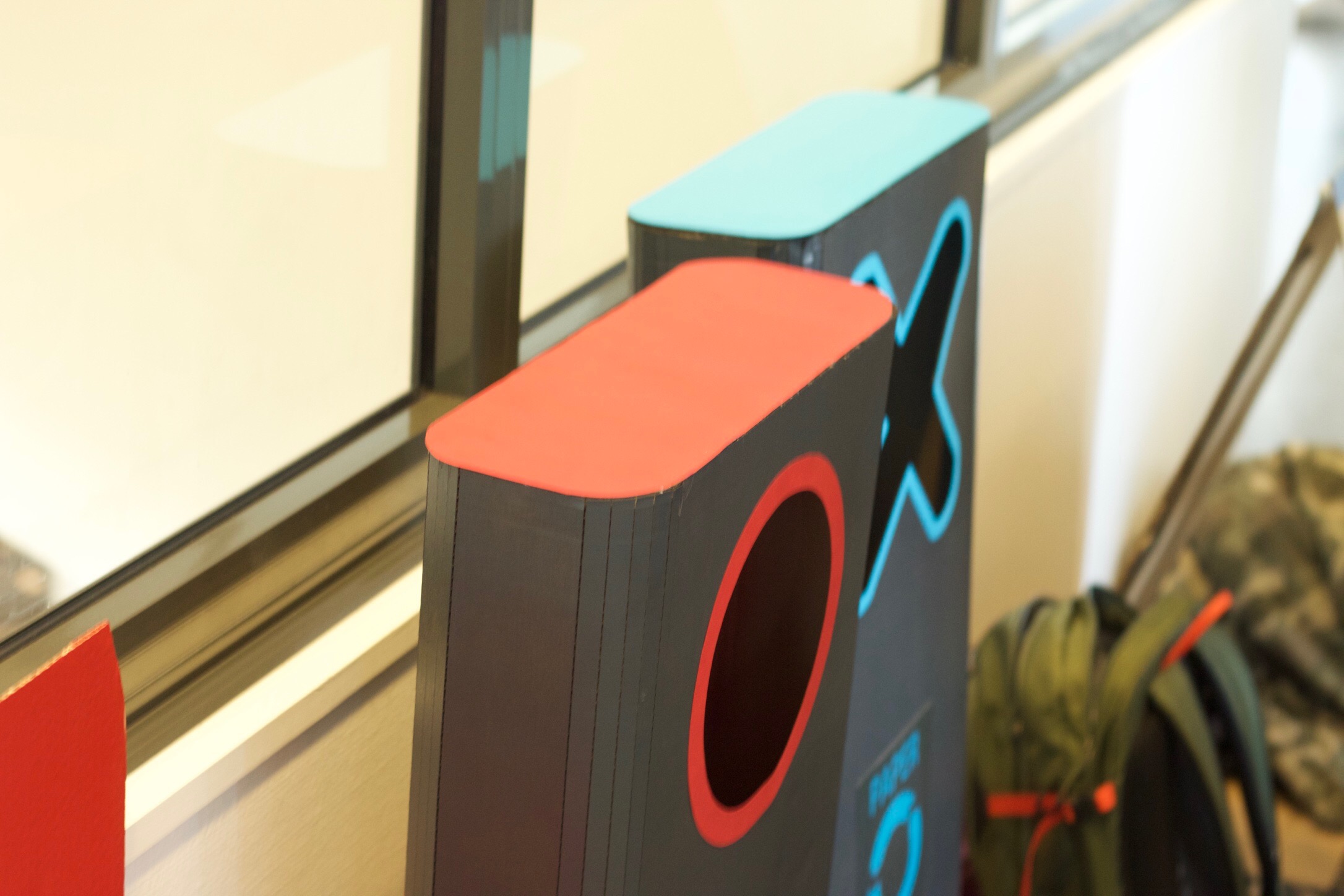
Design Thinking 2016
The Mechanical Engineering and MSPI students in the Design Thinking course presented their projects and final prototypes. The students have been working in start-up mode with problems that they have defined by themselves. One team focused on recycling in public areas and environments and the other team has focused on possible…
More articles about Extreme PSS Innovation can be found here.
Course partners












Contact
